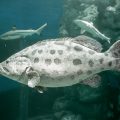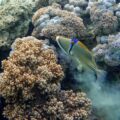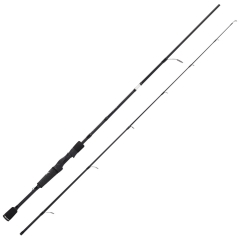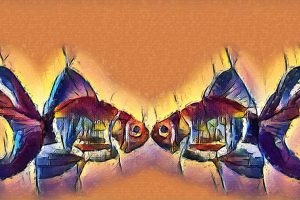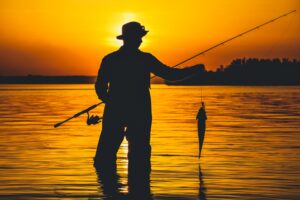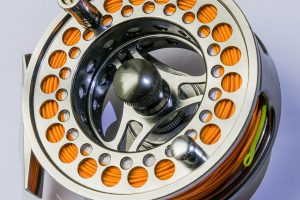Groupers are not the same as cichlids. They have certain characteristics that are like cichlids, but they differ in certain categories. Although both are saltwater fish, they differ in many ways. However, the cichlid family has a very common similarity with tilapia. Some species of cichlids may look like groupers but are not the same. Cichlids come in various body sizes with a wide range of varieties. Depending on the species type, they can even be 1 inch to 3 feet long.
What are cichlids?
Cichlids are freshwater fish that belong to a largely tropical family. The daily catch includes fish like discuses, mouthbrooders, angelfishes, and tilapia. They have 1,300 species of fish in the Cichlidae family. Therefore, they are often used as aquarium fish as they belong to freshwater.
Cichlids are vibrant in color with a vivid texture. They are deep-bodied, with one nostril on each side of the head. These fish usually have rounded tails. The typical growth of an aquarium cichlid is about 30 cm (12 inches). There are different fishes in the cichlid family, but they differ from each other vividly. They are adaptive, but every species has a different nature. They have different food habits.
Cichlids are very common in freshwater, including rivers, lakes, swamps, ditches, and puddles. As they are low maintenance, they are often farmed for business. These fish are also cheap, so people love to eat them for their daily protein intake. These fish are not deep-water fish. You can catch them even in shallow water. They prefer warm temperatures, at least 20 degrees centigrade. However, some cichlids can be found in California despite being freshwater fish.
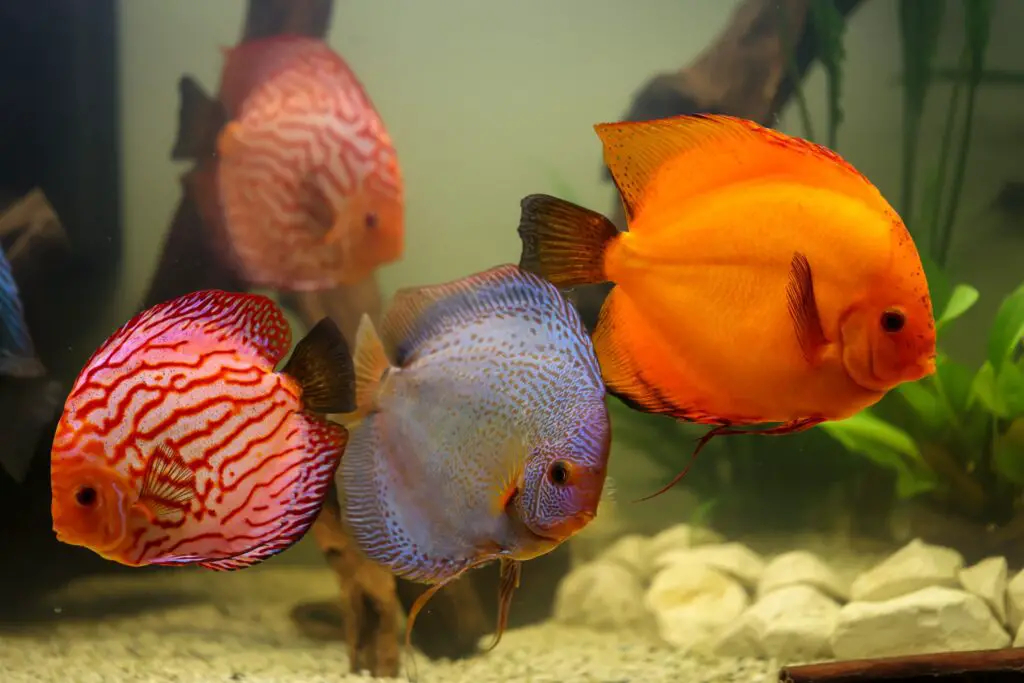
Cichlid Food Habits
The species have different food habits depending on the specific species. They can be herbivorous. Some of them live on algae and plants alongside insects. Also, some of them are detritivores.
Where Can You Find Cichlids?
This fish is commonly found in tropical America, mainland Africa, Madagascar, and Asia. They are common freshwater fish to keep in the aquarium. They can coexist with many fishes without complications, so they are suitable for keeping in a house environment with other aquarium fish.
Different cichlid species live in different areas. Some live in the rocky areas, some in the open water. You can also find some cichlids on sandy beaches. Their living area differs depending on the species.
Difference Between Grouper and Cichlids
First of all, groupers are saltwater fish, whereas cichlids are not. Although you can find some species of cichlids in saltwater, they are rare in number. Mostly, cichlids are found in freshwater, in shallow areas. On the contrary, groupers are often found in deep waters. You have to set the bait at a certain depth to catch a grouper.
Another difference is that groupers prefer to live near rocky areas and ledges, but you can find cichlids in almost every place in the water. Again, groupers are not that common to catch, but cichlids are pretty common. Groupers come in different patterns, but they have prominent brown stripes on their body, but most cichlids do not have the stripe.
Cichlids have white, flaky meat with a mild flavor if you focus on the taste. On the contrary, groupers have a mild yet distinct flavor. Almost all the groupers taste the same, but cichlids differ in taste. Groupers are known to be aggressive. If you catch a grouper, you have to put quite a force into pulling the line, but cichlids are not that aggressive. They are often cultivated on farms.
Grouper fish have robust bodies and huge mouths. The body characteristics differ from those of cichlids because cichlids are deep bodied with nostrils on both sides of the head, because groupers are aggressive, they do not coexist well with other fish unless you have a large aquarium. In this sense, cichlids are better because they coexist well with other fish and do not put up a fight.
Health Benefits of Cichlids
Cichlids are filled with omega-3 fatty acids alongside different vitamins. You can get rare vitamins like D and B2 (riboflavin) from this fish. They are also a source of nutrients like calcium and phosphorus, and minerals.
Health Benefits of Grouper
Groupers are very nutritious fish compared to other fish. They are a great source of vitamins and minerals. Groupers also contain omega-3 fatty acids without any harmful fats or carbohydrates.
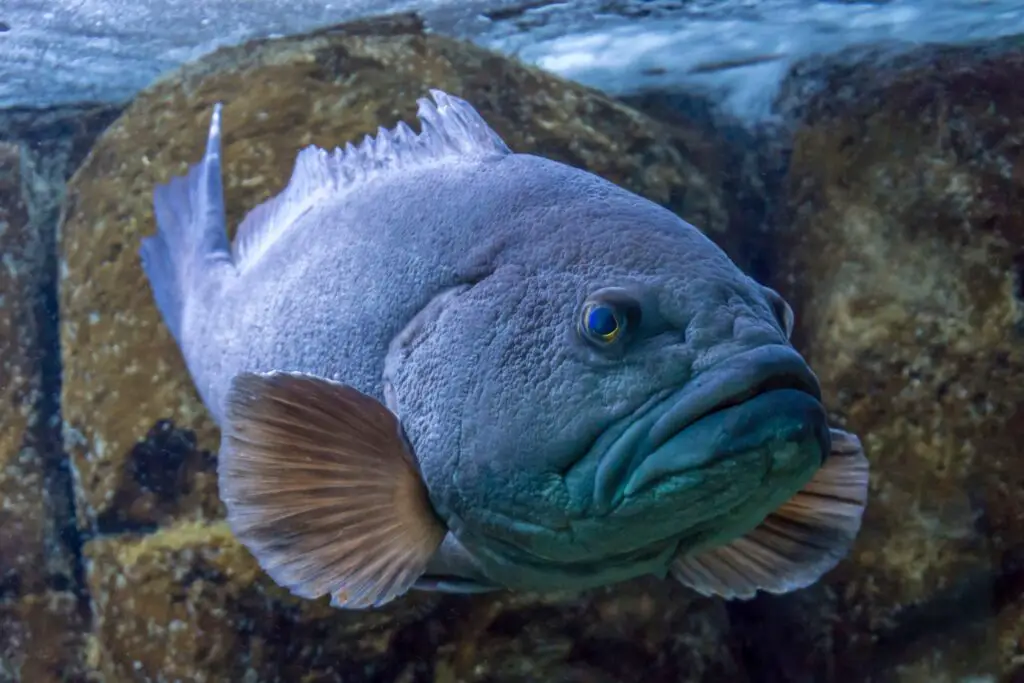
Cichlids Or Groupers: Which One Is Good for Aquariums?
Cichlids are good for aquariums and are often farmed as well. They get along with most fish without putting up a fight. You can make them co-exist with other fish in the tank without any issues. The South American cichlids get along with every fish species, like tetra, if the fish do not pick on them, but they can be aggressive if the other fish do not cooperate.
Although they are good aquarium fish, they produce a lot of waste. You will notice the aquarium is dirty more often than other tropical fish. You might need to clean it more often and use good filtration to keep the aquarium clean. The food habits of cichlids are easy to maintain. You can feed your adult cichlids 3–4 times a day.
On the contrary, groupers can be kept in your aquarium if you maintain a few things. One, they require a large space. Two, you will need to be very specific about the other fish you keep together, as they are very aggressive. Therefore, cichlids are a much better choice to keep in the aquarium than groupers. You will need to choose a type of grouper which does not get very large, if you are going to keep them in an aquarium. Groupers will normally be found in the ocean and a good example of one is a red grouper.
Conclusion
People might tell you that these two belong to the same category, but they are wrong. There are visible differences between these two fish. Clearly, groupers are not that good of an aquarium fish unless you take some measures.


